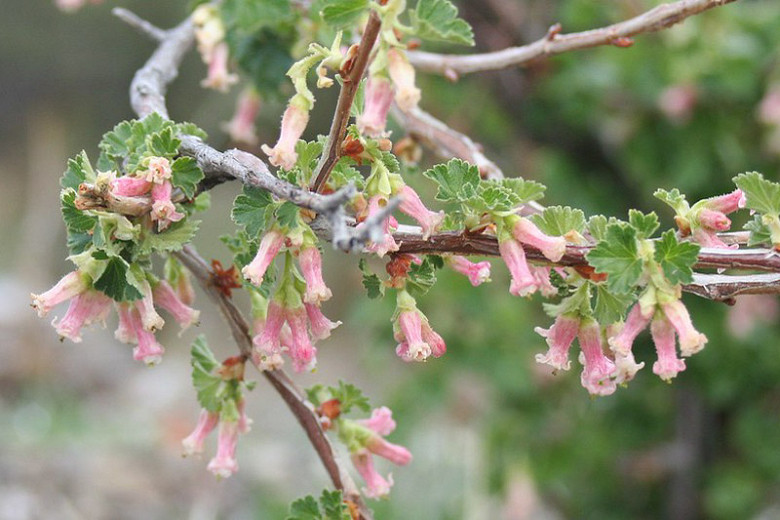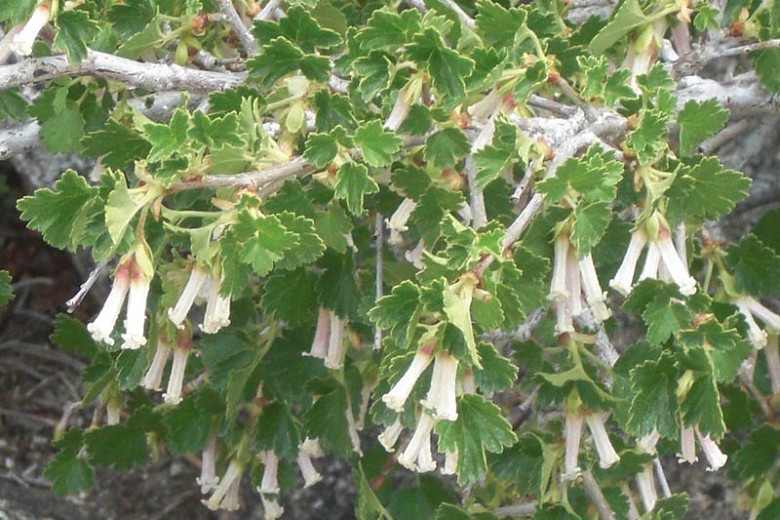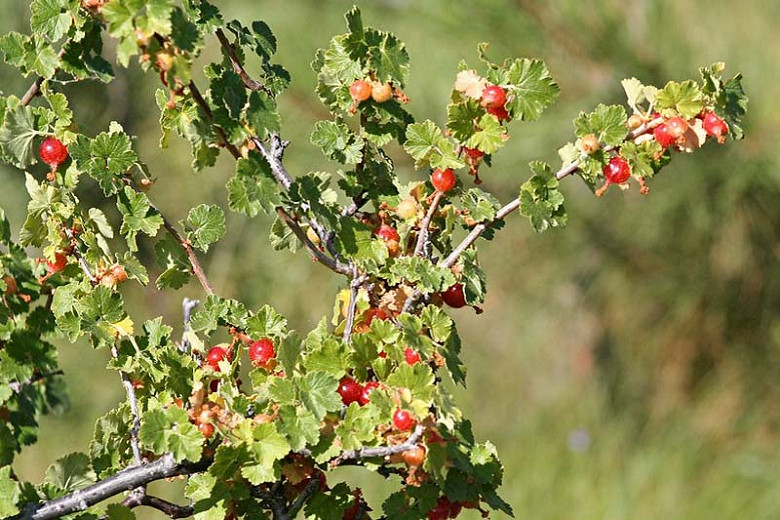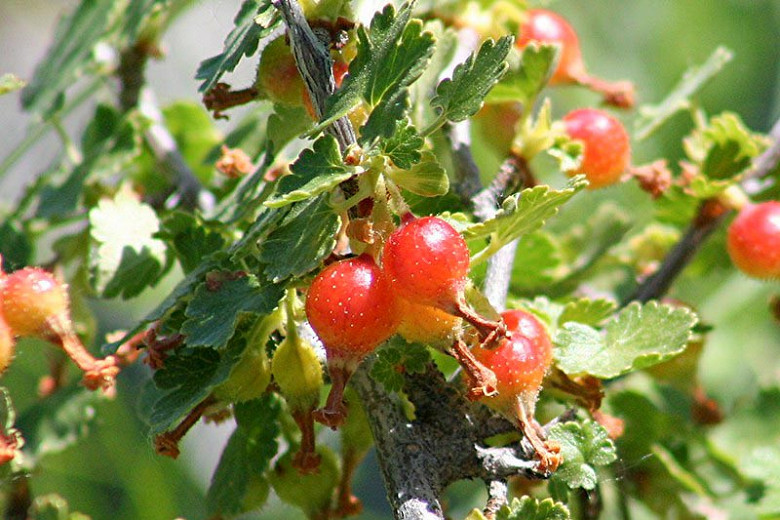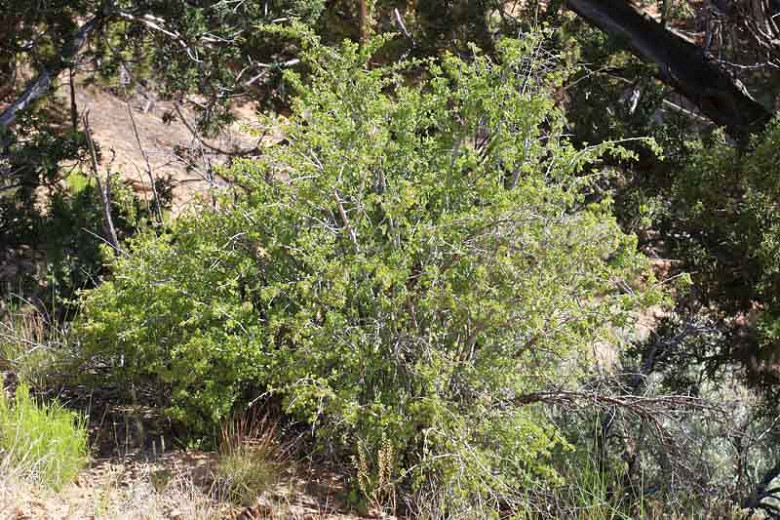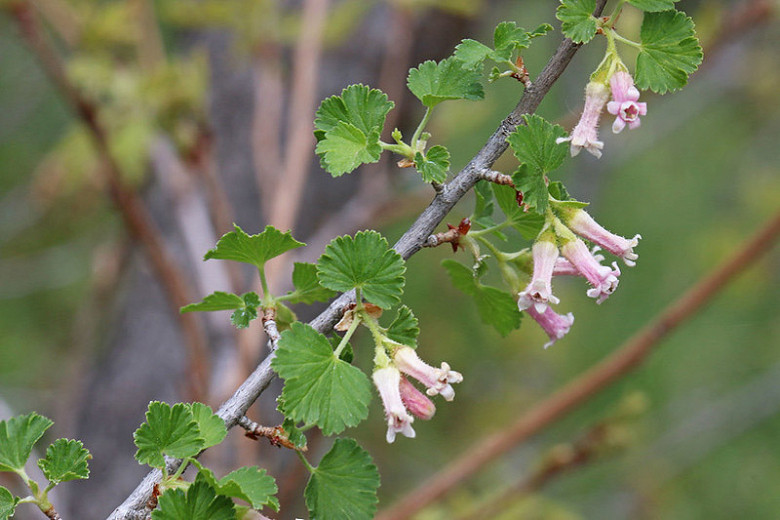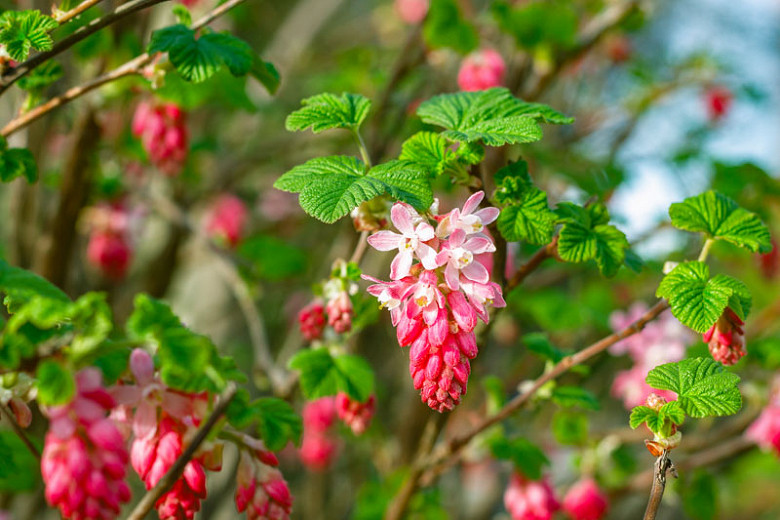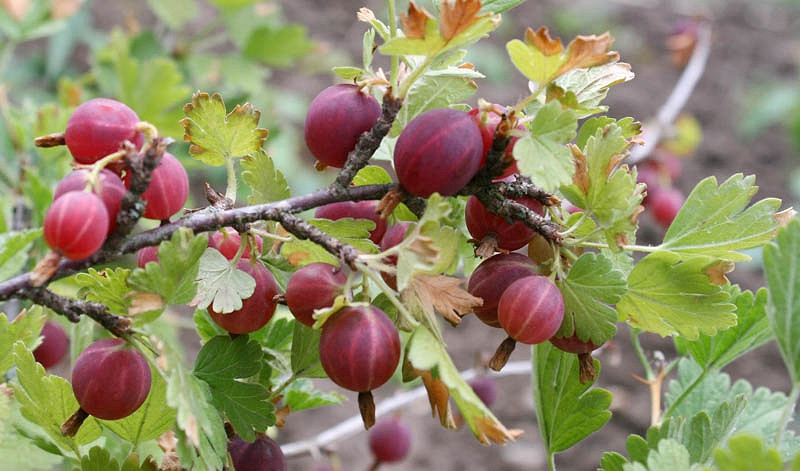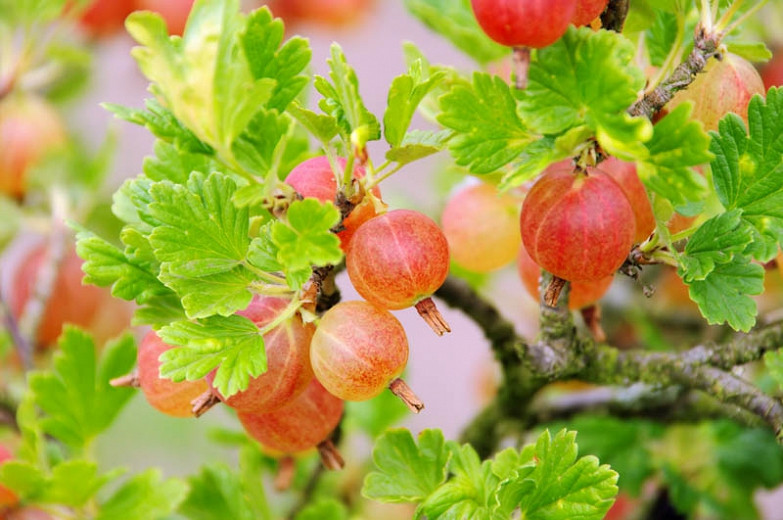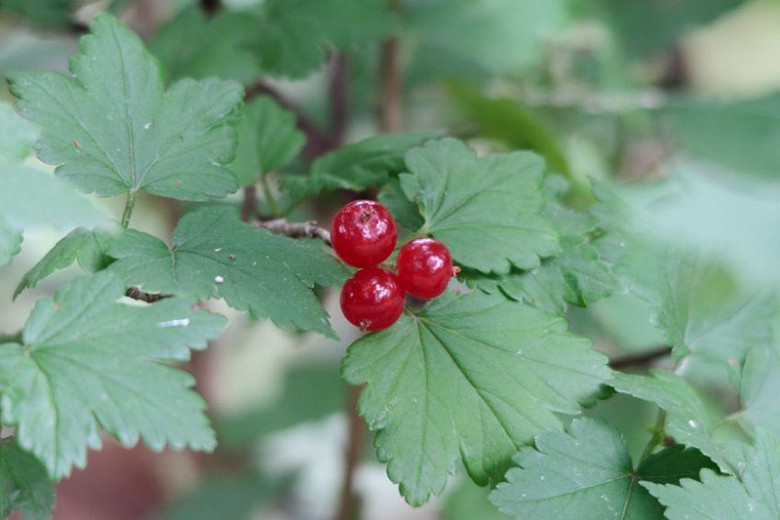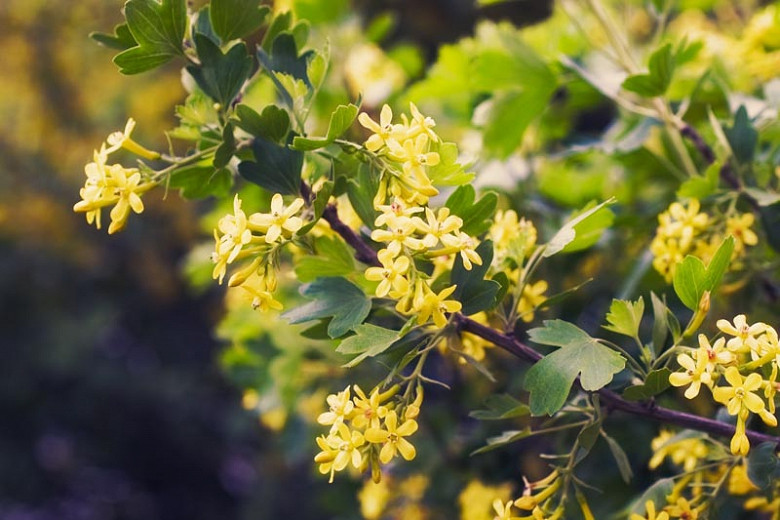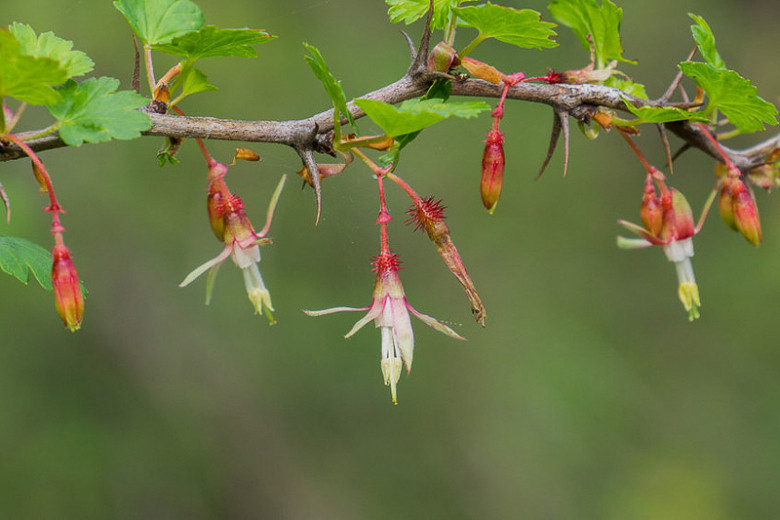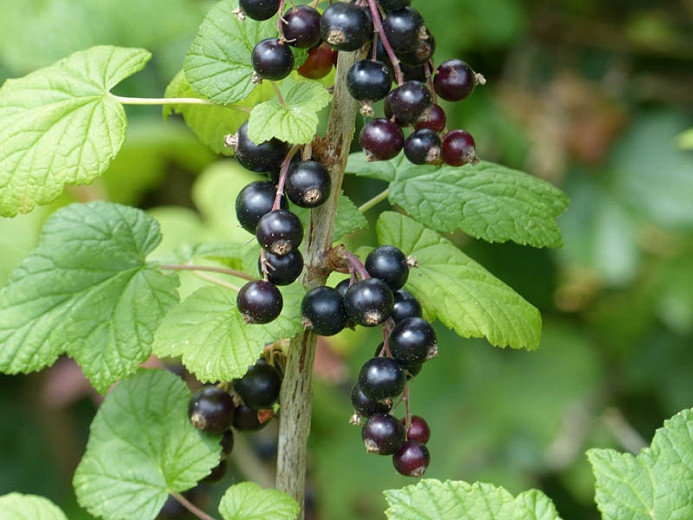Ribes cereum (Wax Currant)
Ribes cereum (Wax Currant) is a compact, mound-forming, deciduous shrub with numerous smooth-barked branches clad with small, somewhat rounded, 3-5 lobed leaves. The light-green foliage is studded with resin glands and turns shades of yellow in the fall. From mid-spring to mid-summer, a profusion of pale pink, bell-shaped flowers appear in drooping clusters.
Ribes cereum (Wax Currant) is a compact, mound-forming, deciduous shrub with numerous smooth-barked branches clad with small, somewhat rounded, 3-5 lobed leaves. The light-green foliage is studded with resin glands and turns shades of yellow in the fall. From mid-spring to mid-summer, a profusion of pale pink, bell-shaped flowers appear in drooping clusters. They attract bees, butterflies, hummingbirds, and other pollinators. The blossoms give way to bright-red berries. The fruits are used for making jam, jelly, or pie – unless hungry birds feast on them. Wax Currant is not rhizomatous and reproduces mainly by seed. This western US native provides food and cover for wildlife and is sometimes grown as an ornamental.
- Grows up to 3-5 ft. tall and wide (90-150 cm).
- Performs best in full sun to part shade in dry, rocky, or sandy, well-drained soils.
- No serious pest or disease issues. Wax Currant is an alternate host for white pine blister rust which infests five-needled pines.
- Propagate by seed. Seeds require scarification to germinate
- Native from British Columbia to northern California east to Montana, Nebraska, Colorado, and New Mexico.
Requirements
| Hardiness | 5 – 8 |
|---|---|
| Plant Type | Shrubs |
| Plant Family | Ribes – Currants |
| Exposure | Full Sun, Partial Sun |
| Season of Interest | Spring (Mid,Late)Summer (Early,Mid,Late)Fall |
| Height | 3' – 5' (90cm – 150cm) |
| Spread | 3' – 5' (90cm – 150cm) |
| Spacing | 36″ – 60″ (90cm – 150cm) |
| Water Needs | Low |
| Maintenance | Low |
| Soil Type | Chalk, Clay, Loam, Sand |
| Soil pH | Acid, Alkaline, Neutral |
| Soil Drainage | Well-Drained |
| Characteristics | Fruit & Berries |
| Native Plants | California, Midwest, Nebraska, North Dakota, South Dakota, Pacific Northwest, Idaho, Oregon, Washington, Rocky Mountains, Colorado, Montana, Utah, Wyoming, Southwest, Nevada, Arizona, New Mexico, Oklahoma |
| Attracts | Bees, Birds, Butterflies, Hummingbirds |
| Garden Styles | Informal and Cottage, Prairie and Meadow |
